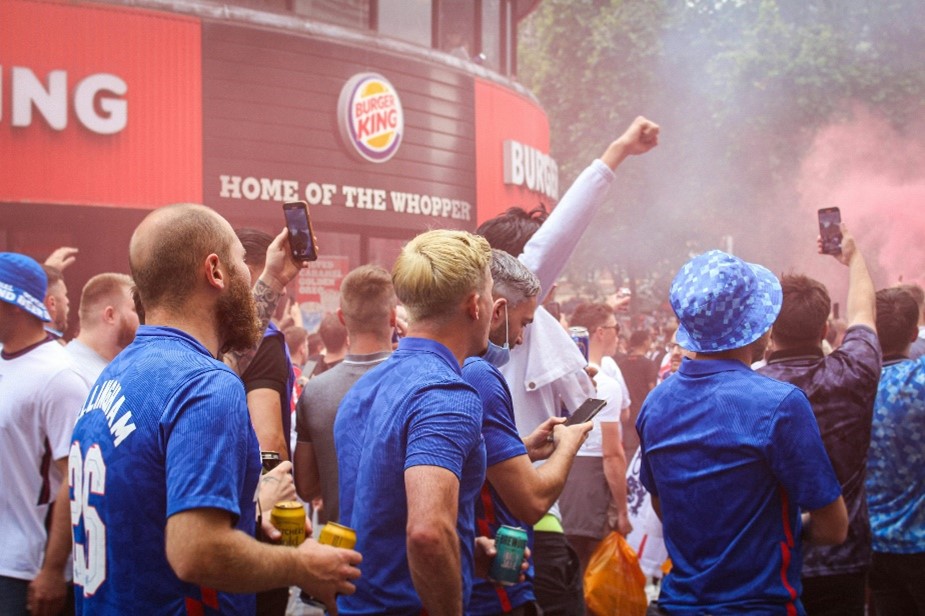Steaua Bucharest are having something of an identity crisis, and that’s putting it mildly. After losing a trademark battle with the Romanian defence ministry, the club have been stripped of their name, colours and emblem. A bizarre set of circumstances for the 1986 European champions, historically speaking, they’re one of the bigger teams in European football. Even without the emblem they kiss, the colours they wear, and the name they chant, I imagine many Steaua Bucharest supporters will continue to support their club as they’ve always done. The question is, what next for Steaua Bucharest? How can a football club/brand adapt to this peculiar set of circumstances?
Introduced as the “Champions of Romania” and referred to as “hosts” on their own scoreboard, it appears this identity issue may be here to stay. Instantly, this causes some issues. Being forced to change a huge part of your brand, you have a number of stakeholders to keep happy. Firstly, the fans, even voluntary changes, no matter how small, can provoke a huge backlash from supporters, particularly if your club has a history it can be proud of. Everton altered their badge in May 2013, and faced such fury from fans that they were forced to pull the design, enter a consultation phase with supporters before putting it to a public vote. Anyway, if they do have to re-invent themselves, then history and I suggest that the supporters are consulted.
The next group of stakeholders to consider, are the sponsors. They’ve invested in this club as ‘Steaua Bucharest’ – one of the world’s most famous clubs, a club whose history includes the longest winning streak in European football (104 games!). While it may be the same squad and stadium that the sponsors have financially supported, a complete brand overhaul will mean the clubs identity may not be as strong. The state of modern football means that while Steaua were founded as an Army side in 1947, their new identity will have to take sponsors and commercial partners into consideration for them to be sustainable as a club.
The ideal scenario will see the two parties reach a compromise, which, at time of writing, is certainly still an option on the table. Reinventing a football club is an extremely rare occurrence, and in this hyper-commercialised arena, the decisions regarding the ‘brand’ of the club may well focus more on the wants of the sponsors rather than take into account the emotive pleas and desires of the Steaua faithful. A situation which doesn’t quite seem fair.
NB – I’m aware that I referred to them as Steaua throughout this piece, it is quite difficult to write about Steaua without referring to them as Steaua. Finally, this is probably my one and only opportunity in a professional capacity to bring up the important role that Steaua Bucharest played in my beloved Middlesbrough’s most famous European footballing feats, the greatest comeback since Lazarus – https://www.youtube.com/watch?v=PgpA0S2Ciqo.




